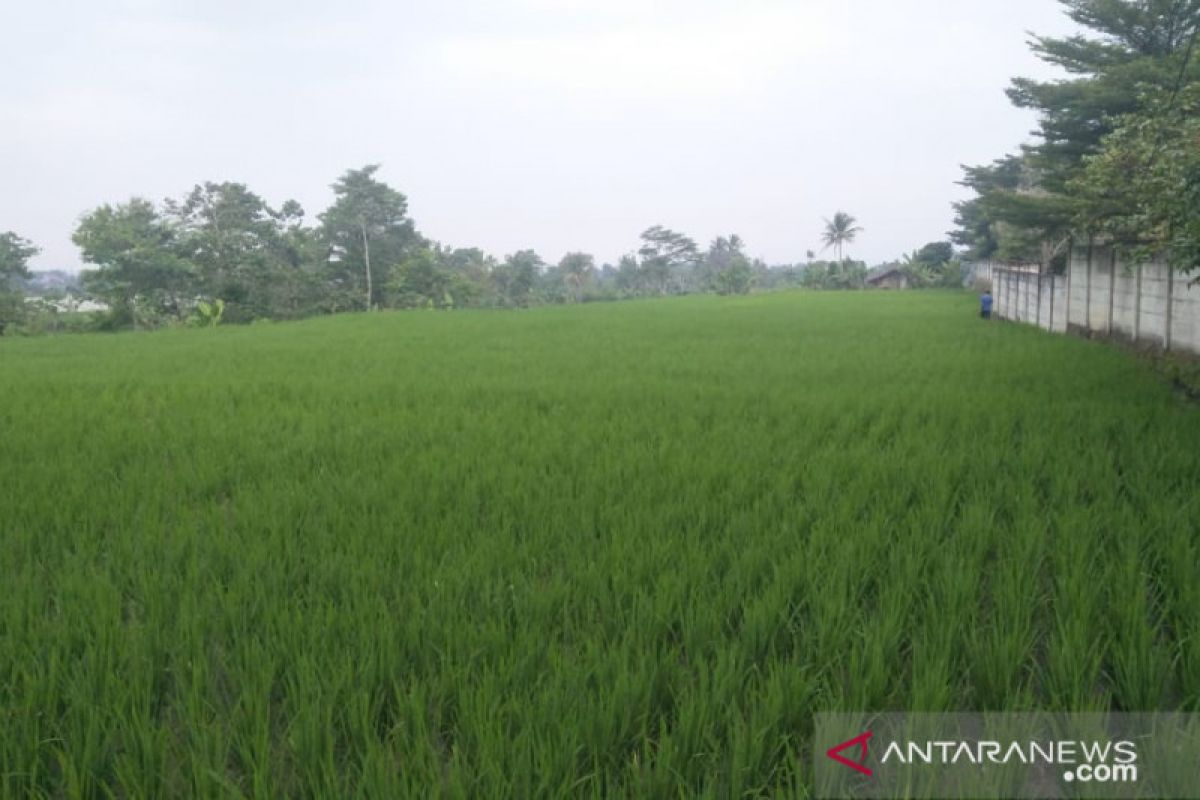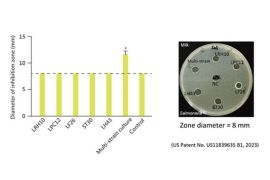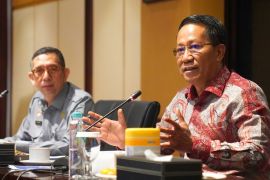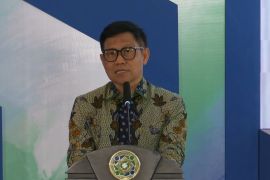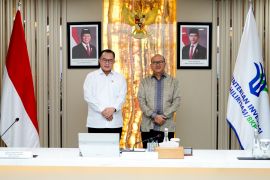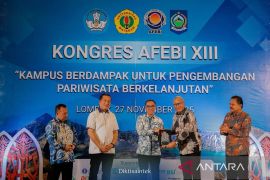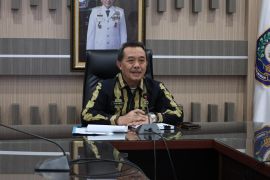Land expansion is not effective as the main solution in responding to challenges in the agricultural sector and meeting Indonesia's food needsJakarta (ANTARA) - The adoption of research, innovation, and technology is expected to be more effective in boosting agricultural production capacity amid rapid population growth, according to the Center for Indonesian Policy Studies (CIPS), a research institute.
"The government should strengthen existing food production by supporting research and innovation, adopting agricultural technology, and increasing the capacity of farmers to be more productive, including through collaboration with the private sector," said Head of Agricultural Research at CIPS Aditya Alta in a press statement issued here on Monday.
CIPS’ research has recommended increasing land and labor productivity through the use of superior seeds, increasing access to fertilizers, handling pests/plant destruction organisms (OPT), and using agricultural machinery or mechanization.
Further, land productivity can also be increased by improving cultivation techniques, improving and expanding irrigation networks, undertaking weather modifications to mitigate climate change, and increasing human resource capacity in the agricultural sector.
According to Alta, efforts to increase agricultural production through the expansion of agricultural land do not guarantee an increase in food productivity and could potentially damage the environment and exacerbate the climate crisis.
"Land expansion is not effective as the main solution in responding to challenges in the agricultural sector and meeting Indonesia's food needs. This method is not in accordance with the principle of sustainability and has the potential to damage the environment,” he explained.
The agricultural sector, including in Indonesia, is facing many challenges in growing food, he added. One of them is the climate crisis, which is causing various natural disasters whose impact is triggering uncertainty during the planting and harvesting seasons and leading to reduced agricultural production.
Challenges faced in the agricultural sector include the reduction in the number of workers, the declining welfare of farmers, the increasing price of fertilizers, and other issues caused by the global situation.
"The population continues to increase. However, the amount of available land will remain the same and must be shared with infrastructure and industrialization needs. So, the productivity capability on existing agricultural land must be increased to keep up with the growth in food demand," he said.
The productivity of the agricultural sector in Indonesia is still low due to lack of research and innovation as well as limited adoption of good cultivation practices and minimal use of agricultural technology, Alta added.
The CIPS study found that in general, the cost of producing key foodstuffs in Indonesia is higher than in some countries exporting the same commodity, mainly due to the inefficient production mechanism and distribution system in Indonesia.
Alta said he believes that high production costs can be overcome through sustainable agricultural investments that can encourage modernization and technology transfer.
"Indonesia's food system is still faced with various problems, such as high production costs, inefficient production processes, and long distribution chains, all of which have an impact on prices," he noted.
Clearing new rice fields, especially on peatlands, will take a long time. Besides they may not necessarily help meet the shortage in food stocks. Further, the characteristics of land cleared for agriculture may also not be necessarily suitable for growing food.
In addition, the program to clear land for making rice fields also risks threatening the existing ecosystem and destroying the balance of the environment.
Related news: Ministry encourages agriculture industries to adopt digital ecosystem
Related news: Technology can help remove negative stigma around farming: govt
Related news: Global collaboration crucial for resolving food crisis: Minister Limpo
Translator: Aditya Ramadhan, Katriana
Editor: Sri Haryati
Copyright © ANTARA 2022
